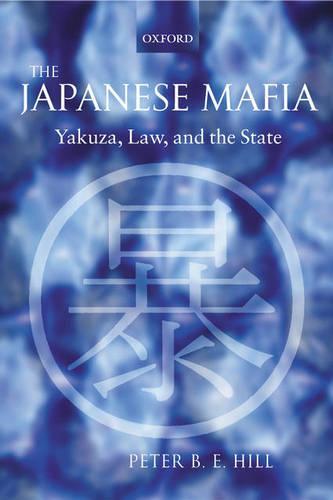Overview
The Japanese mafia - known collectively as yakuza - has had a considerable influence on Japanese society over the past fifty years. Based on extensive Japanese language source material and interviews with criminals, police officers, lawyers, journalists, and scholars, this is the first English language academic monography to analyse Japan's criminal syndicates. Peter Hill argues that the essential characteristic of Japan's criminal syndicates is their provision of protection to consumers in Japan's under- and upper-worlds. In this respect they are analogous to the Sicilian Mafia, and the mafias of Russia, Hong Kong, and the United States. Although the yakuza's protective mafia role has existed at least since the end of the Second World War, and arguably longer, the range of economic transactions to which such protection has been afforded has not remained constant. The yakuza have undergone considerable change in their business activities over the last half-century. The two key factors driving this evolution have been the changes in the legal and law enforcement environment within which these groups must operate, and the economic opportunities available to them. This first factor demonstrates that the complex and ambiguous relationship between the yakuza and the state has always been more than purely symbiotic. With the introduction of the boryokudan (Iyakuza) countermeasures law in 1992, the relationship between the yakuza and the state has become more unambiguously antagonistic. Assessing the impact of this law is, however, problematic; the contemporaneous bursting of Japan's economic bubble at the beginning of the 1990s also profoundly and adversely influenced yakuza sources of income. It is impossible to completely disentangle the effects of these two events.By the end of the twentieth century, the outlook for the yakuza was bleak and offered no short-term prospect of amelioration. More profoundly, state-expropriation of protection markets formerly dominated by the yakuza suggests that the longer-term prospects for these groups are bleaker still: no longer, therefore, need the yakuza be seen as an inevitable and necessary evil.
Full Product Details
Author: Peter B. E. Hill (University of Oxford)
Publisher: Oxford University Press
Imprint: Oxford University Press
Dimensions:
Width: 15.60cm
, Height: 2.00cm
, Length: 23.40cm
Weight: 0.488kg
ISBN: 9780199291618
ISBN 10: 0199291616
Pages: 336
Publication Date: 26 January 2006
Audience:
Professional and scholarly
,
Professional & Vocational
Format: Paperback
Publisher's Status: Active
Availability: To order

Stock availability from the supplier is unknown. We will order it for you and ship this item to you once it is received by us.
Reviews
An exceptional piece of scholarship in an area that has needed such a work for a long time. The book will appeal to academics from across the disciplines and to policymakers and practitioners interested in the challenges posed by organized crime. --Journal of Japanese Studies A well-researched and authoritative study of the yakuza, the Japanese 'mafia' .... the main storyline is accessible and fascinating in its details. --Choice I cannot recommend this book highly enough to any one with an interest in the interplay of culture, crime, and law. --The Law and Politics Book Review. ..a well-written and exceptional piece of work in the area of research on Japanese organized crime. ...a valuable addition to the study of crime and criminal justice in Japan. ...a fine body of fieldwork that required some considerable fortitude. [Hill] has explored a difficult area of Japanese society that most Japanese researchers, including myself, might not have the courage to explore. --International Criminal Justice Review
An exceptional piece of scholarship in an area that has needed such a work for a long time. The book will appeal to academics from across the disciplines and to policymakers and practitioners interested in the challenges posed by organized crime. --Journal of Japanese Studies<br> A well-researched and authoritative study of the yakuza, the Japanese 'mafia' .... the main storyline is accessible and fascinating in its details. --Choice<br> I cannot recommend this book highly enough to any one with an interest in the interplay of culture, crime, and law. --The Law and Politics Book Review<br> .,. a well-written and exceptional piece of work in the area of research on Japanese organized crime. ...a valuable addition to the study of crime and criminal justice in Japan. ...a fine body of fieldwork that required some considerable fortitude. [Hill] has explored a difficult area of Japanese society that most Japanese researchers, including myself, might not have the courage to explore. --International Criminal Justice Review<br>




